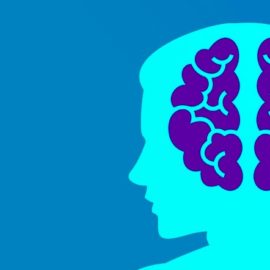

This article is an excerpt from the Shortform book guide to "Unfu*k Yourself" by Gary John Bishop. Shortform has the world's best summaries and analyses of books you should be reading.
Like this article? Sign up for a free trial here.
What do affirmations do for us? Are positive affirmations always effective? How can you use them most effectively?
Author Gary John Bishop distilled years of research and experience as a life coach and personal development consultant into his book Unfu*k Yourself. In the book, he explains the power of positive affirmations and what they can do for your self-talk and overall mindset.
Read on to learn what affirmations do for you and how to make the most of them, according to Bishop.
What Do Affirmations Do?
In his self-help book Unfu*k Yourself, Gary John Bishop aims to increase your understanding of how your mind works so you can use its power to your advantage. Bishop argues that the way you think dictates your reality. He offers seven specific affirmations that you can use to reshape your thoughts and improve your life. But, what do affirmations do and are they really effective in changing your mindset?
According to Bishop, who distilled years of research and experience as a life coach and personal development consultant into his book, affirmations play a role in shaping your self-talk. Bishop says studies show that people who have positive self-talk are not only happier and more confident but also more productive. The opposite is also true: If you speak harshly to yourself and generate a constant stream of negative messages, you may internalize them, become depressed, and see your performance suffer.
(Shortform note: Neuroscience and psychology studies back up many facets of Bishop’s approach in this book. His recommendations overlap with many techniques from Cognitive Behavioral Therapy (CBT), which aims to identify problematic thought patterns and train you to think differently. Within this framework, Bishop’s use of affirmations is an example of a cognitive restructuring technique because it trains you to notice what you’re thinking and offers you a set of alternative thoughts. Other strategies for cognitive restructuring include learning to question the accuracy of your thoughts and evaluating how helpful they are to you.)
Affirmations Can Uncover Your Deepest Beliefs
What do affirmations do in terms of reframing your unconscious beliefs? While the assertive affirmations in Bishop’s book are meant to redirect your self-talk, they also guide you to transform the underlying beliefs at the root of that self-talk. You may not realize you hold these convictions at all, which is why they’re known as unconscious beliefs. As Bishop explains, neuroscientists have proven that while your conscious mind feels like it’s the one calling the shots, in fact, most of what you do is determined by your subconscious opinions about who you are and what you can expect from your surroundings. These opinions may have formed in response to early childhood experiences. As a result, they might be irrational, or even the opposite of what you consciously believe.
This becomes a problem because it’s extremely difficult to make changes that contradict your unconscious beliefs, even if you really want to. For instance, returning to the scenario where you’re stuck in a dead-end job, suppose a friend asked you why you were still working there. You’d probably have an explanation that made sense to your conscious mind, such as, “I’ve been so busy lately that I haven’t had a chance to look for a new job.” You probably wouldn’t say, “Failure is so painful that it’s best not to try.” But if, below the level of conscious thought, some part of you has decided that’s true, it could be the real reason you haven’t filled out any applications.
In this way, the obstacles to progress can often be found deep within you. That’s why three of Bishop’s assertive affirmations guide you to confront beliefs that might have been invisible to you until now.
| Unconscious Beliefs Also Create Social Biases While Bishop’s focus in this book is on helping individuals reach their full potential, unconscious beliefs can also have an impact at a societal level, as in the case of implicit bias. In Biased, Jennifer Eberhardt delves into the science and sociology of unconscious racial bias to show how the brain’s natural tendencies to make assumptions and sort people into categories, combined with a culture of pervasive anti-Blackness, results in widespread racial bias. According to Eberhardt, you may not be aware of these prejudices, but they affect what you notice in your environment and how you interact with others. She argues this type of bias has profound implications in areas like education, housing, and criminal justice. |
Making Affirmations Count
Another thing experts claim affirmations do is promote change at an unconscious level—repeating carefully chosen phrases is a widely recommended strategy for creating a positive change in your mindset. However, one thing that distinguishes Bishop’s approach from other popular positive mindset tools is that he prescribes the same language for everyone. In contrast, other experts suggest writing your own affirmations, specifically tailored to the patterns you’re trying to overcome. Additionally, some experts add that you can reinforce your motivational phrases by adding a physical gesture or movement to accompany the words, repeating the phrases while walking, or focusing on a specific memory that brings up the feeling of the affirmation you want to instill.
Affirmations May Not Be Effective for Everyone
Although affirmations are a widespread technique, there’s some evidence that they may not be effective for everyone, or that they may only work under certain circumstances. One study showed that in some cases positive affirmations had the opposite of the intended effect, making people who had low self-esteem feel worse about themselves. In light of those findings, some experts propose targeting low self-esteem through other means, such as reducing the tendency to compare yourself to others, nurturing your interpersonal relationships, and practicing receiving praise. This could be pursued before or in conjunction with positive affirmations, in order to make them more effective.

———End of Preview———
Like what you just read? Read the rest of the world's best book summary and analysis of Gary John Bishop's "Unfu*k Yourself" at Shortform.
Here's what you'll find in our full Unfu*k Yourself summary:
- How your mind works and how you can use its power to your advantage
- Why your subconscious mind is actually the one calling the shots
- The seven phrases you can use to reshape your thoughts






